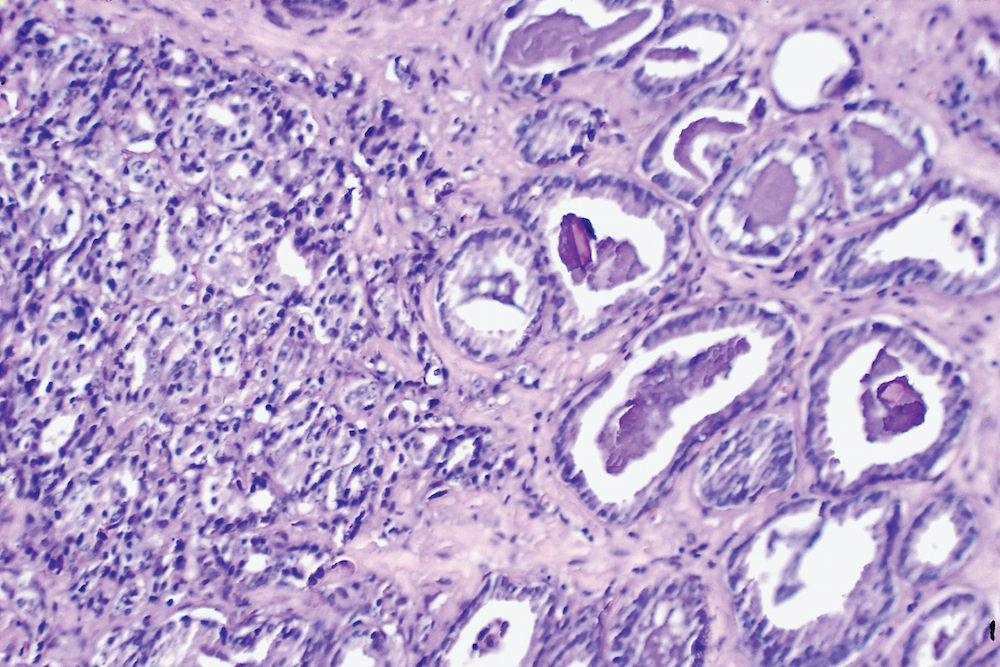Carcinoma of the prostate is a type of prostate cancer that occurs when normal prostate cells begin to grow uncontrollably.
Carcinomas begin in the epithelial tissue—the thin tissue, like skin, that covers the linings of internal organs. Other cancers typically form in the body’s connective or supportive tissues (sarcomas), blood-forming tissue like bone marrow (leukemia), or within the immune system (lymphomas and myelomas).
Carcinomas are the most common type of cancer and they can be broken down into multiple subgroups: squamous cell carcinoma, adenocarcinoma, transitional cell carcinoma, and basal cell carcinoma.
How common are carcinomas of the prostate?
The most common carcinoma of the prostate is an adenocarcinoma; they make up about 95% of all prostate carcinomas. Adenocarcinomas are a type of cancer that are produced by glandular cells, such as those of the prostate gland. They are most commonly found in men over the age of 70.

Other carcinomas of the prostate are less common and only make up about 5% of total prostate carcinomas. Transitional cell carcinomas form in the cells that cover the urethra. This cancer typically begins in the bladder and then spreads to the prostate. Some carcinomas, like squamous cell or small cell carcinomas, are rare, malignant tumors of the prostate. In contrast to most prostate cancers that are slow growing, and these types of carcinomas are usually aggressive.
In general, most prostate cancers grow slowly, so much so that men who have prostate cancer are often unaffected by it during their lifetime. In the less common situation, the cancers can spread and grow quickly and are treated with many types of therapies.

This was very informative and rounded out my knowledge on this topic as I’ve also understood that most prostrate cancers are very slow in growing, and indeed when many elderly men die they have prostate cancer (though that was not the cause of death).